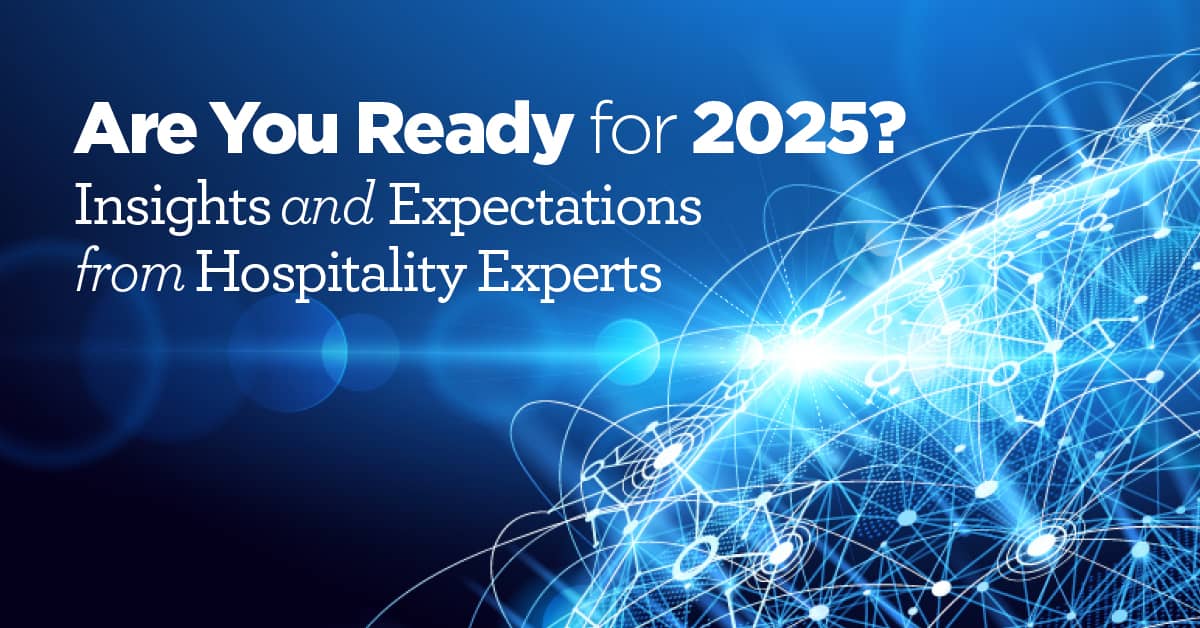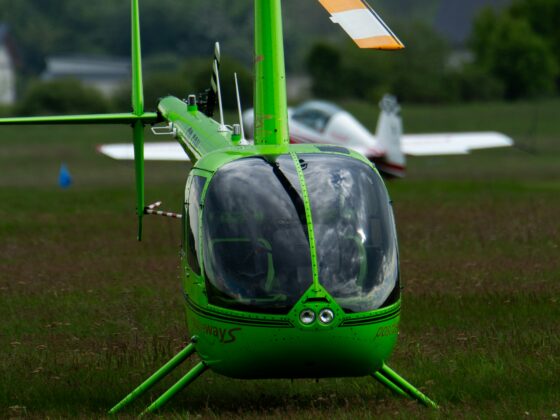
As we approach 2025, the hospitality industry faces a transformative moment with both unique challenges and exciting opportunities. Economic pressures, rapidly evolving technology, and changing guest expectations are pushing hoteliers to rethink the strategies and systems needed to thrive.
In our latest whitepaper, 5 Predictions Shaping the Future of Hospitality, hospitality experts from around the globe share their thoughts on some key trends within the industry—and how technology can help hoteliers meet the moment.
So what’s top of mind as we head into 2025? We asked contributing hospitality experts to weigh-in.
Stepping up Personalization Efforts to Meet Evolving Guest Expectations
As technology advances, guests increasingly expect a tailored experience that resonates with their individual preferences. Daan De Bruijn, Co-Founder of Bookboost, emphasizes the importance of the industry striving for “personalization at scale”—creating a seamless, unique journey for each guest from start to finish. Hotels now leverage AI and guest data to analyze behavior and preferences, enabling everything from personalized welcome messages to tailored activity recommendations.
“As consumer preferences evolve, hotels must stay agile and responsive to shifting demands. This adaptability is crucial for maintaining relevance and competitiveness in a fast-paced market,” says Savaina Karaivanova of Userguest.
Personalization is not just about enhancing the guest experience; it’s also a powerful potential revenue driver. With access to advanced analytics, hotels can identify opportunities for upselling, cross-selling, and offering customized packages that resonate with individual guests. While the industry has made significant strides on this front, the clock is ticking as younger generations increasingly see what was once novel as normal.
“Travelers, especially younger generations such as Gen Z and Millennials, are seeking more personalized, authentic, and tech-centric experiences,” says Susanna Mazzoncini of Bookassist. “By 2025, they will expect seamless digital interactions, mobile-first engagement, and curated, unique stays”
Maximizing Data’s Value by Connecting Systems
It’s no secret that data is the fuel powering an engine of innovation, guest experience enhancements and more throughout the industry.
“The speed of innovation and the vast number of new and exciting opportunities to pursue present a real challenge,” says Frank Trampert of Sabre Hospitality Systems. “If you get it right—if you understand what drives the highest level of value—the revenue-generating opportunities for independent hotels, chains, and hotel groups have never been better.”
The great potential of hospitality technology systems and the data that fuels them is clear, but so are the pitfalls of poor connections between siloed systems.
“One of the biggest challenges for hotels in 2025 is disparate, disconnected technology. Hotels have more data than ever at their fingertips, with guest information available from many sources and systems,” says Jim Rowe of Jonas Hospitality. “Overcoming this challenge requires implementing modern, unified technology that streamlines operations, revenue, and marketing by mobilizing guest data.”
While there’s work to be done, it’s a challenge many technology providers and the clients they serve are intent on solving, with aspects of it eased by the adoption of cloud technology.
“The migration to cloud-based systems will provide hotels with greater flexibility, scalability and cost efficiency,” says Katie Moro of Amadeus.
Moro shares cloud solutions enable seamless data integration, real-time updates, and remote access—an excellent foundation for a well-connected hospitality technology ecosystem that enhances guest experiences and streamlines operations.
Adapting to Economic Pressures
Labor shortages, rising operational costs, and economic volatility present headwinds to growth, and hospitality providers need to be able to adapt quickly to thrive.
These conditions call for finding ways to do more with what’s available. Automating routine tasks, such as check-in and concierge services, can help alleviate staffing challenges, allowing hotel staff to focus on enhancing guest interactions.
“Many hoteliers fear that technology will replace human connection,” says Sara Smith of Mews. “They’ll do better to embrace the other view—that technology will enhance human connections.”
For example, Smith shares that by accepting and leveraging tools like smart chatbots to handle repetitive tasks, front desk staff can shift their focus from screens to building stronger relationships with guests.
“As more and more hotels move to cloud-based systems, it is increasing flexibility in the hospitality workforce,” Rowe says. “Staff that are needed in and around the property can get real-time, reliable information, while managers, directors, and owners, are able to run the hotel from anywhere – checking in and updating rates from home, making housekeeping schedules before the day starts, and so on.”
In response to these economic pressures, many hospitality providers are looking for additional levers to pull in order to adapt, with eyes on attracting new market segments, capitalizing on trending travel behaviors and looking beyond room revenues to secure the most profitable business available to them.
“With the rise of experiential travel and diverse customer needs, there’s potential for growth by providing unique experiences and expanding into new markets,” says Jon Eichelberger of TrustYou
What’s Next?
The future of hospitality will be defined by the challenges and opportunities that come with a fast-shifting technology landscape. Is your organization ready to face what’s to come?
For more perspective on the trends and technologies sure to shape the year to come, download our whitepaper: 5 Predictions Shaping the Future of Hospitality







